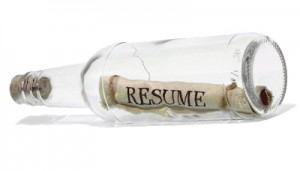 Tell us something about yourself.
Tell us something about yourself. This is maybe one of the more underestimated interview parts of all. Everyone thinks it’s such an easy task to talk about ourselves and most candidates don't prepare at all for this. Talking about ourselves it sounds easy because we know very well what we have done and what our responsibilities were. However, in an interview we might discover that things are not so simple. If we don't prepare in advance, we will end up saying things that are not so relevant for the employer, that don't make too much sense or we will talk too much about the less important things.
It happens to me quite often, when I talk to candidates prior to the interviews, to hear "Self presentation, yes...I know what to say...I have been to many interviews before". My question 'Were those interviews successful?' makes them wonder and be quiet for a while.
Having a good self-presentation will help us to draw the attention of
the interviewer(s) to the best of our strengths and away from your
weaknesses. Ideally we should prepare a tailor -made presentation for each and
every interview. If this seems too much, one option would be to write
our highlights into bullet points and adapt it to the type of job we are
applying for.
Usually approximately 2 minutes should be enough for the self-presentation. Here are the main points that should be included in the speech:
- personal background,
- educational background,
- achievements in our past or current employment;
- one or two examples of projects/responsibilities/achievements relevant for job we are applying
- our future career goals and how the job we are interviewing for would fit into our plans;
- summarization on why we are at the interview (explain how the job and our expertise would contribute both to the company and our career goals in the most satisfying manner).
Self-presentations
should be prepared in advanced and before going to the interview we should ask
ourselves:
Is the presentation interesting, overall?
Am I able to present the highlights of my achievements and strengths accurately?
Am I matching my skills to the needs of the vacancy the interview is for?
Am I confident when I am speaking?
Is my style of speaking clear and loud enough, fast/slow enough?
Is the presentation interesting, overall?
Am I able to present the highlights of my achievements and strengths accurately?
Am I matching my skills to the needs of the vacancy the interview is for?
Am I confident when I am speaking?
Is my style of speaking clear and loud enough, fast/slow enough?
After having our presentation ready, it comes one of the essential parts:
practice. We should be careful to maintain a continuous flow, have a
confident tone but not being too loud or arrogant and exclude the breaks of ‘aaaaa’/
‘hmmmmm’ from our speech.
What also always helps is to be critical to ourselves and after every
interview to think about the way we presented ourselves. Recognizing the
moments where we could have said things in a better way will help us to improve from one
interview to another.
And remember that having many interviews doesn't necessarily mean that
we are also good at it.




